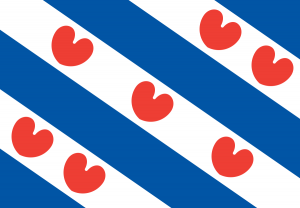Difference between revisions of "Language/Western-frisian/Grammar/Adjectives"
m (Quick edit) |
m (Quick edit) |
||
| Line 50: | Line 50: | ||
<hr>If you have any questions, please ask them in the comments section below.<br>Feel free to edit this wiki page if you think it can be improved. 😎 | <hr>If you have any questions, please ask them in the comments section below.<br>Feel free to edit this wiki page if you think it can be improved. 😎 | ||
==Related Lessons== | |||
* [[Language/Western-frisian/Grammar/Negation|Negation]] | |||
* [[Language/Western-frisian/Grammar/Plurals|Plurals]] | |||
* [[Language/Western-frisian/Grammar/Pronouns|Pronouns]] | |||
* [[Language/Western-frisian/Grammar/Questions|Questions]] | |||
* [[Language/Western-frisian/Grammar/Conditional-Mood|Conditional Mood]] | |||
* [[Language/Western-frisian/Grammar/Gender|Gender]] | |||
{{Western-frisian-Page-Bottom}} | {{Western-frisian-Page-Bottom}} | ||
Revision as of 23:06, 25 February 2023
Hi Western Frisian learners! 😊
In today's lesson, we will be discussing adjectives in the Western Frisian language. Adjectives are words that describe or modify nouns and pronouns. They can be used to give more information about a person, place, thing, or idea. We will look at how to form adjectives, how to use them in sentences, and some common examples.
Formation of Adjectives
Adjectives in Western Frisian are formed by adding suffixes to nouns or verbs. The most common suffixes are -lik, -sum, and -ich.
-Lik
The suffix -lik is used to form adjectives from nouns. For example, the noun "boek" (book) becomes the adjective "boeklik" (book-like).
-Sum
The suffix -sum is used to form adjectives from verbs. For example, the verb "skriuwe" (to write) becomes the adjective "skriuwsum" (writing-like).
-Ich
The suffix -ich is used to form adjectives from nouns and verbs. For example, the noun "frou" (woman) becomes the adjective "frouich" (womanly), and the verb "dwaan" (to do) becomes the adjective "dwaanich" (doing-like).
Using Adjectives in Sentences
Adjectives can be used to give more information about a noun or pronoun. They can be placed before or after the noun or pronoun they are describing.
For example:
- "De boeklikke man" (The book-like man)
- "De man boeklik" (The man book-like)
Adjectives can also be used to compare two things. For example:
- "De skriuwsumme man is mear produktyf as de dwaanich man" (The writing-like man is more productive than the doing-like man).
Common Examples
Here are some common examples of adjectives in Western Frisian:
- Boeklik (book-like)
- Skriuwsum (writing-like)
- Dwaanich (doing-like)
- Frouich (womanly)
- Manlik (manly)
- Lyts (small)
- Grut (big)
- Moai (beautiful)
- Lekker (tasty)
If you have any questions, please ask them in the comments section below.
Feel free to edit this wiki page if you think it can be improved. 😎
